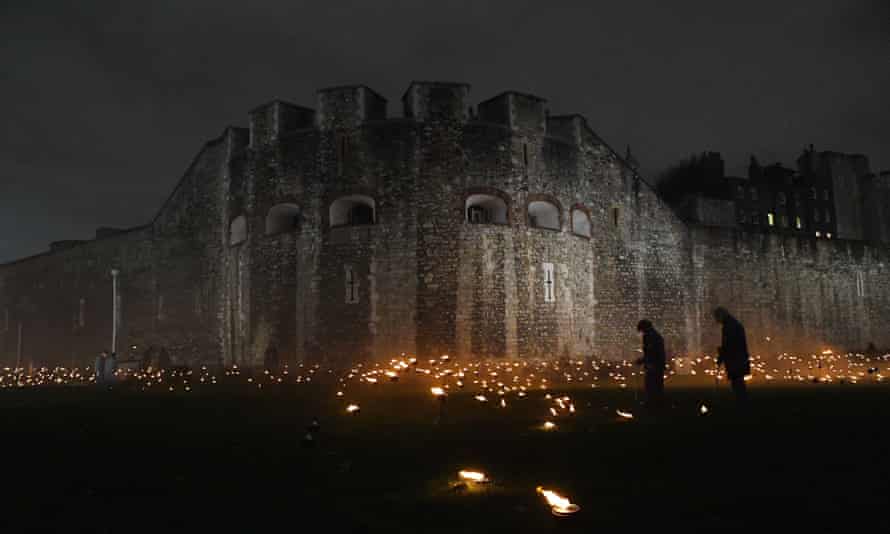Mira Calix, who has died unexpectedly aged 52, was a composer, electronic musician and installation artist who started out working for indie record labels and organising club nights in the experimental hinterland of the 1990s rave scene. From the moment she arrived in the UK from South Africa in 1991 (then known as Chantal Passamonte), she was making connections and changes in the music world.
In 1996, she released her first record, the EP Ilanga, for Warp Records, becoming one of the first female artists to sign to the label. She came to prominence in 2003 when the London Sinfonietta premiered her work Nunu at the Royal Festival Hall, as part of the Warp Works/20th-Century Masters concert, a collaboration that was pivotal for her and the record label in expanding beyond electronica. From then on Calix was unconstrained by medium, creating work in sculpture, spoken word and conceptual art as well as musical composition and performance.
Nunu – for which Calix used the sounds of insects both recorded and live on stage as part of the performance – was her first commissioned piece for orchestra. She went on to produce work in theatre and opera, including the multimedia opera Elephant and Castle (2007) in collaboration with the composer Tansy Davies (and libretto by Blake Morrison), for the Aldeburgh festival, and Dead Wedding, a remaking of the Orpheus myth with puppetry, commissioned by Opera North for the 2007 Manchester international festival.
For the Sydney festival in 2015, she created the installation Inside There Falls, a vast, rustling paper maze providing an immersive experience of music, voice and dance, and in 2017 she composed scores for Royal Shakespeare Company productions of Julius Caesar and Coriolanus. With each commission or collaboration she made intellectually rigorous, politicised yet accessible works that reached large audiences.
Perhaps her biggest audience came with her 2018 Armistice Day sound art piece accompanying Tom Piper’s Beyond the Deepening Shadow installation at the Tower of London, in which thousands of flames were lit in the moat. It was a complex composition centred on a choral piece, a setting of a poem by the war poet Mary Borden, illustrating the fragile and ephemeral nature of social and political alliances.
However, Calix never left her roots in underground club culture, and continued to DJ around the world, while releasing records filled with echoes from her early years in London’s more far-out nightspots and also grappling with the newest club sounds. Her last album, absent origin, was released at the end of 2021.
Calix was born and grew up in Durban, the daughter of Gabriele and Riccarda Passamonte. Hers was a liberal middle-class family with English and Italian heritage, and she grew up learning ballet and immersed in jazz and classical music – she credited her Zulu childminder with sparking her political engagement.
She moved to London to study photography, escaping a culture that had been stifled by apartheid and international sanctions. Her favourite music at the time was the experimental indie rock of Spacemen 3 and “shoegaze” bands, and by 1993 she found work as a press officer for the indie label 4AD.
She was also immersed in the electronic music scene, working behind the counter of the Ambient Soho record shop in Berwick Street, booking acts for the chillout room of the psychedelic rave night Megatripolis and putting on squat parties in Brixton. She became part of the Telepathic Fish collective, who put on 14-hour ambient sessions; her earliest DJ gigs were under the name “Chantal Telepathic Fish”.
In 1994 she became the press officer at Warp Records, and began a relationship with the label that would last for the rest of her life. When her first tracks were released in 1996, there was no career plan to be a musician – she considered herself a DJ – and it would be two years until her next single, and another two after that before she made an album.
But that album, One on One (2000), was an extraordinary work, and marked the arrival of a serious creative force. Sadly, in the then overwhelmingly male world of electronica she did not get the kudos of her Warp contemporaries Aphex Twin, Squarepusher, Boards of Canada and Autechre, with some fans accusing her of not making her own music (she was married at the time to Autechre’s Sean Booth – they later separated). The album Skimskitta followed in 2003 and Eyes Set Against the Sun in 2007.
After the Sinfonietta collaboration in 2003, Calix began to branch out. She had toured with Radiohead in 2000 and continued to DJ, but she also built installations in tunnels and churches – exploring what it meant to be a body hearing, seeing and feeling in those spaces. For Opera North, with United Visual Artists, she created Chorus (2009), an audio-visual installation of light- and sound-emitting pendulums, presented first at the Howard Assembly Room, Leeds, and then at Durham Cathedral.
Nothing Is Set in Stone, for the 2012 Cultural Olympiad in London, was an interactive sound sculpture at Fairlop Waters park in Ilford. It took the form of an egg-shaped cluster of “singing stones” (activated by the presence of people) whose emanating music gave instant delight and evoked ancient mystery. Calix’s fluency in explaining her ideas and the same easy geniality that had allowed her to network so fast on arriving in London made her adept at navigating the art world.
Her records and artworks buzzed with the pleasure principle, and she could often be found dancing at shows. Her final album was both joyous and full of righteous anger, and showed her as creatively invigorated as she had ever been.
She is survived by her partner, the visual artist Andy Holden, her mother Gabriele and her sister, Genevieve.

